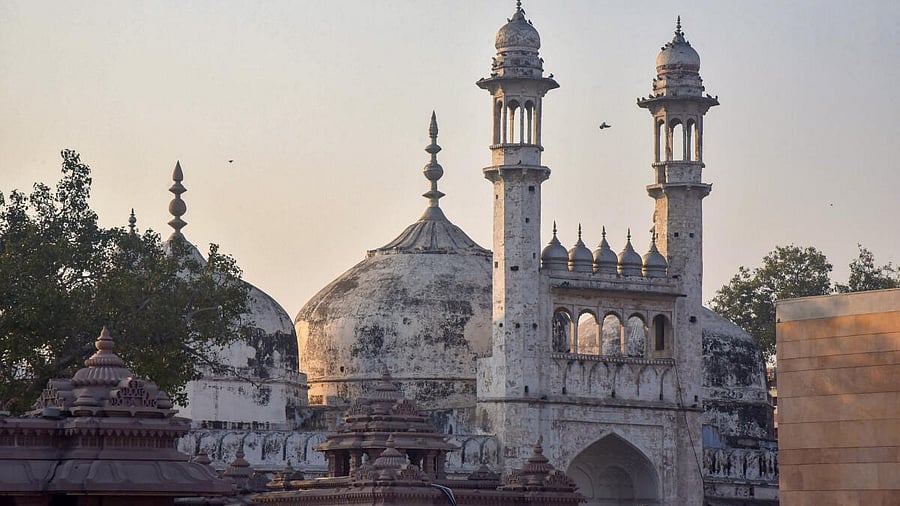
The Gyanvapi Mosque as seen from the Kashi Vishwanath Temple in Varanasi
Credit: PTI Photo
Lucknow: A Varanasi court on Friday rejected the demand by the Hindu plaintiffs for a scientific survey of the entire Gyanvapi Mosque premises by the Archaeological Survey of India (ASI) using machines and digging the premises to collect evidence pointing to what they claimed existence of a temple there.
The lawyer for the Hindu plaintiffs Madan Mohan said that their application for a scientific survey of the entire premises had been rejected by civil judge senior division fast track court Jugal Shambhu.
"We will move the high court against the district court's decision", said Vijay Shankar Rastogi, another lawyer for the Hindu plaintiff said.
The Hindu plaintiffs had contended in their application that there existed a Shivlinga below the main done of the Mosque.
Rastogi had claimed that there used to be a continuous flow of water over the Shivlinga from the water collected in what he said was 'Gyan Kund'.
The Muslim side had pleaded that the survey could damage the Mosque.
A Varanasi court had last year allowed a plea for a scientific survey of the Mosque premises by the ASI but it said that the 'wazukhana' ( a place used by the Muslims to wash their hands before offering prayers) would not be surveyed.
Later the lawyer of the Hindu plaintiffs in the Kashi VishwanathTemple-Gyanvapi Mosque case claimed that the ASI report stated there was evidence that a Hindu temple existed on the Mosque site and that the Mosque had been built after demolishing a Hindu temple in the 17th century.
The Muslim side, however, refuted the assertions and said that there was no conclusive evidence to this effect.
The survey of the Gyanvapi Mosque premises had been undertaken after the Allahabad high court rejected the petition filed by the Muslim litigants seeking a stay on the Varanasi court's order for a scientific survey by the ASI. The supreme court had also refused to stay the survey.